TestMyBrain News

Sept. 1, 2025:
The Many Brains Project is named as Key Partner in Major NIH Initiative to Advance Early Alzheimer's Detection Through Open-Source Digital Tools
Read more
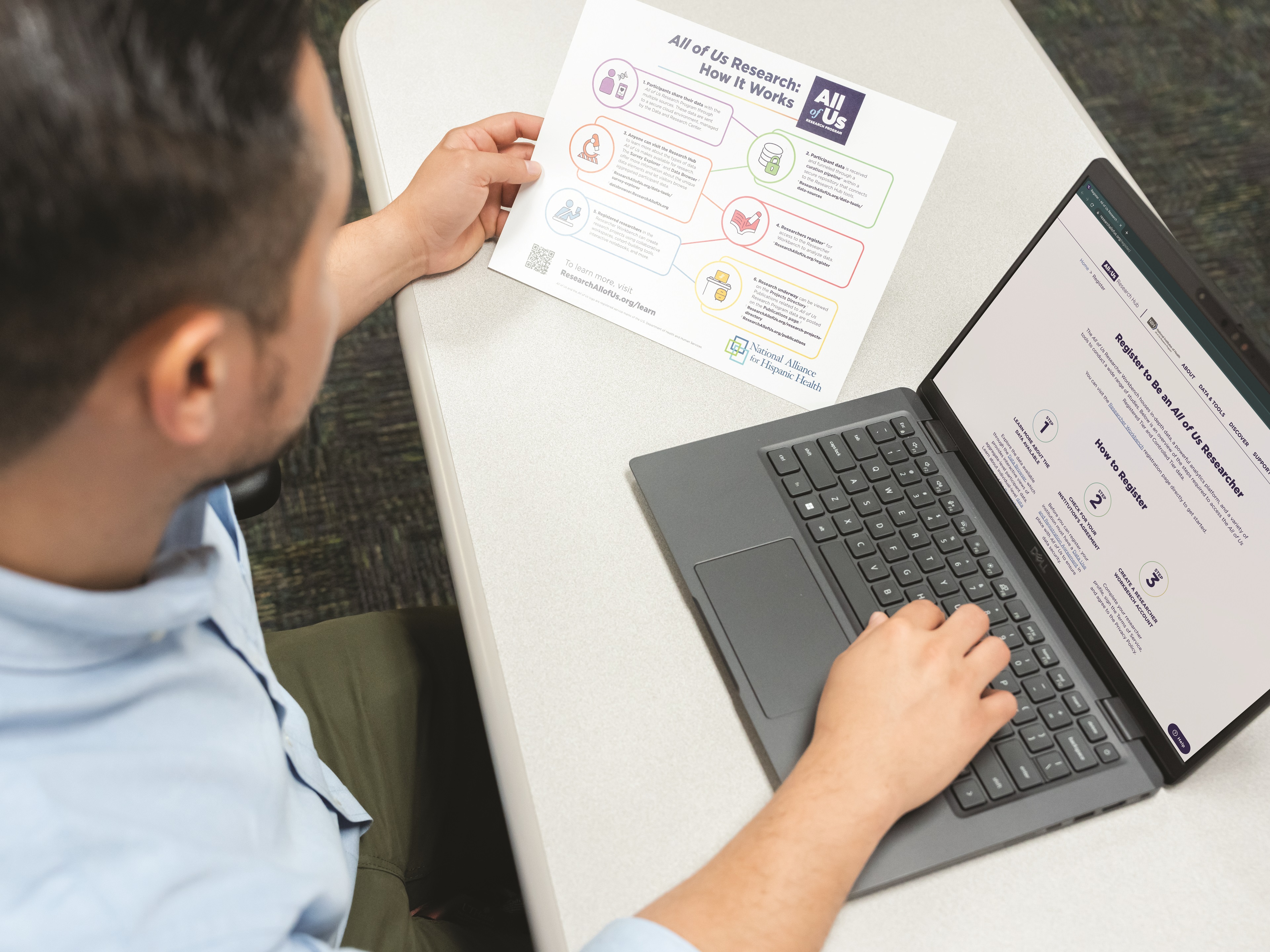
Feb. 24, 2025:
All of Us Releases New Cognitive and Behavioral Health Data: The NIH’s All of Us Research Program has released a vast and novel set of data to help advance and improve how mental and cognitive health disorders are defined, diagnosed, and treated.
Read more

Jan. 9, 2024:
Using Games to Explore the Mind: NIMH and the Many Brains Project partnered with the NIH All of Us Program to adapt a series of new game-like tasks [...]
Read more
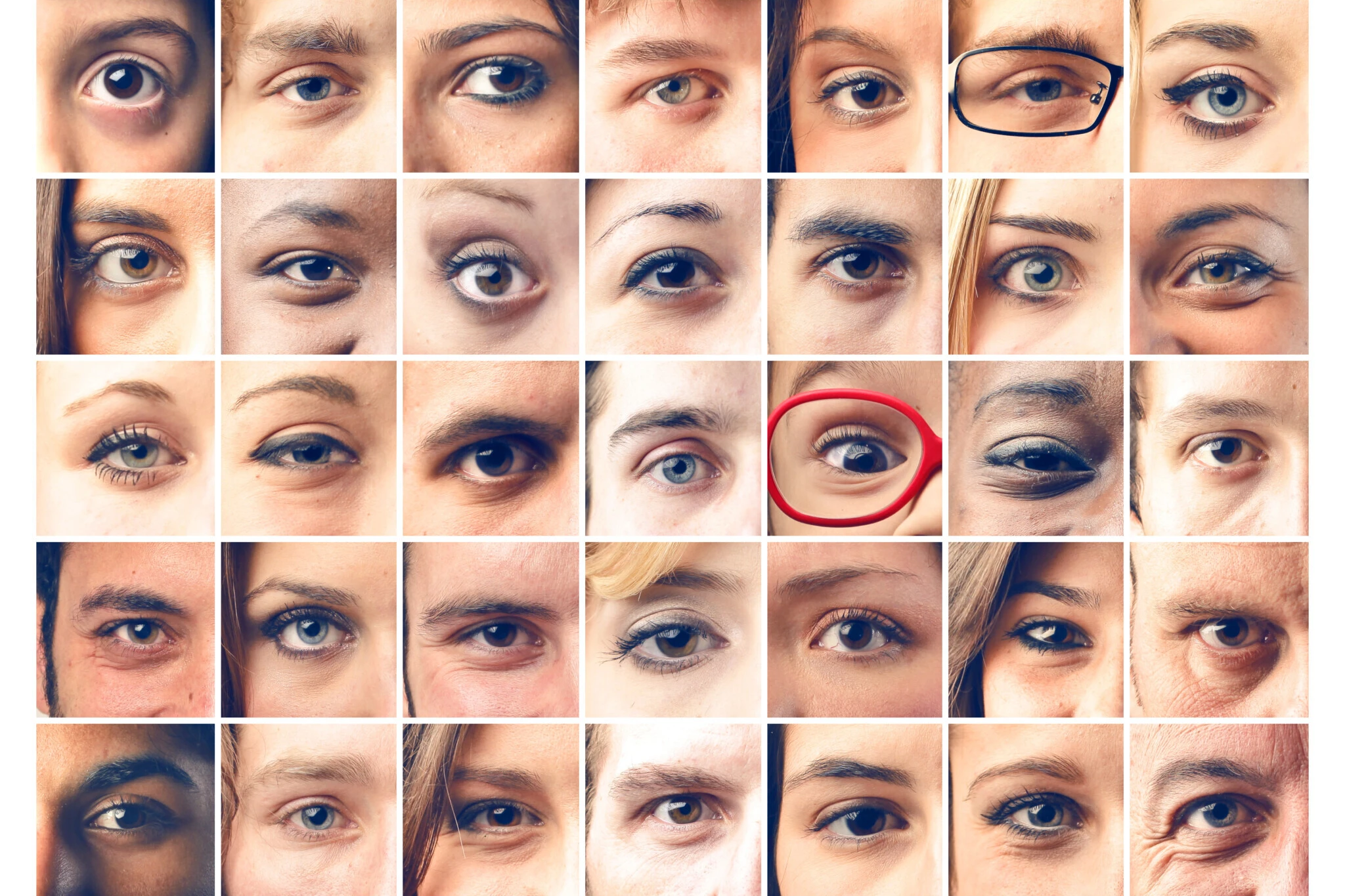
April 18, 2024:
An accurate and inclusive test of mindreading: the Multiracial Reading the Mind in the Eyes Test
"The paper establishes the high quality of the new MRMET test via a massive study of 60,000 participants, recruited via TestMyBrain.org [...]"
Read more

March 19, 2024:
Glucose Levels Affect Cognitive Performance in People With Type 1 Diabetes Differently
"[...] researchers used digital glucose sensors and smartphone-based cognitive tests to collect repeated, high-frequency glucose and cognitive data in 200 individuals with T1D."
Read more
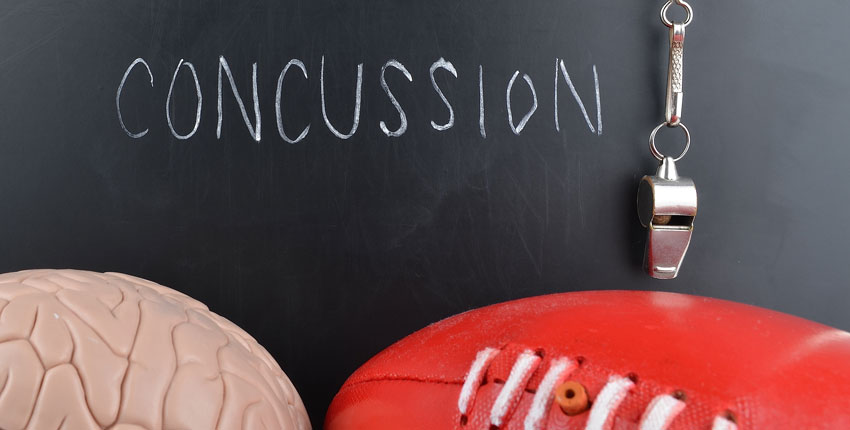
March 3, 2023:
Concussions and Cognitive Performance: Former NFL players study shows concussion impacts decades after retirement
"Players were fully remote and completed tests on a laptop or desktop that included assessments that measured processing speed, visual-spatial and working memory, and aspects of short- and long-term memory and vocabulary."
Read more
Featured Publications
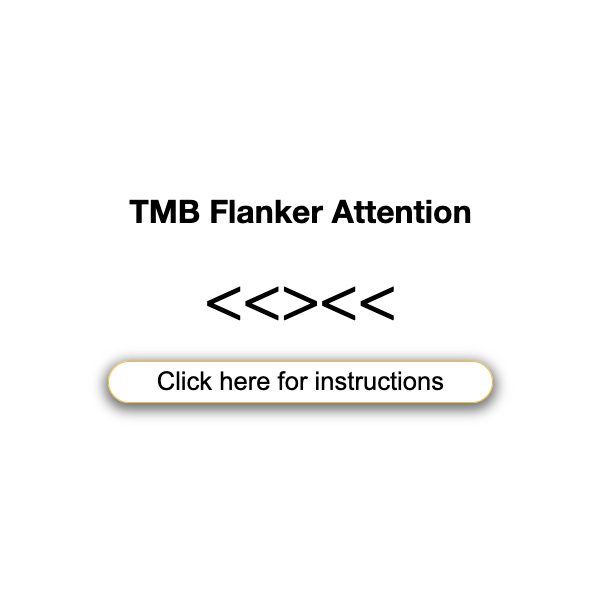
How do we measure attention? Using factor analysis to establish construct validity of neuropsychological tests
Read more
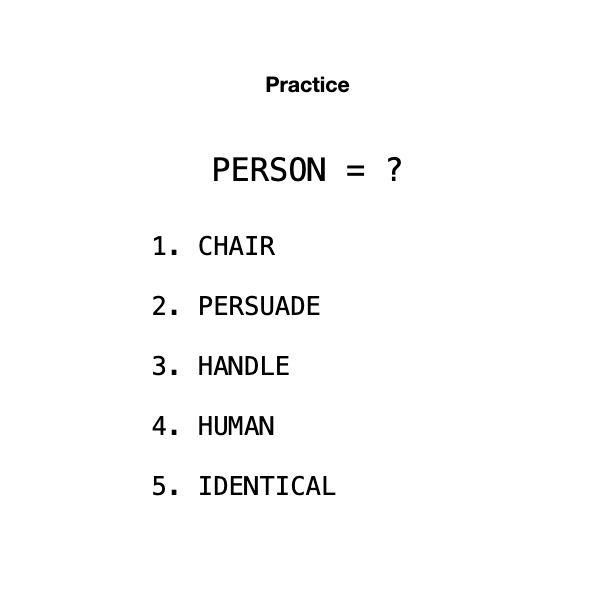
Construct validity, ecological validity and acceptance of self-administered online neuropsychological assessment in adults.
Read more
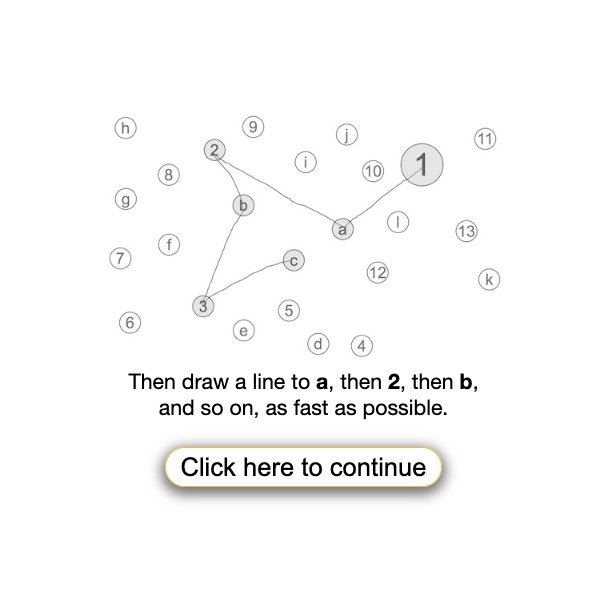
The TestMyBrain digital neuropsychology toolkit: Development and psychometric characteristics
Read more
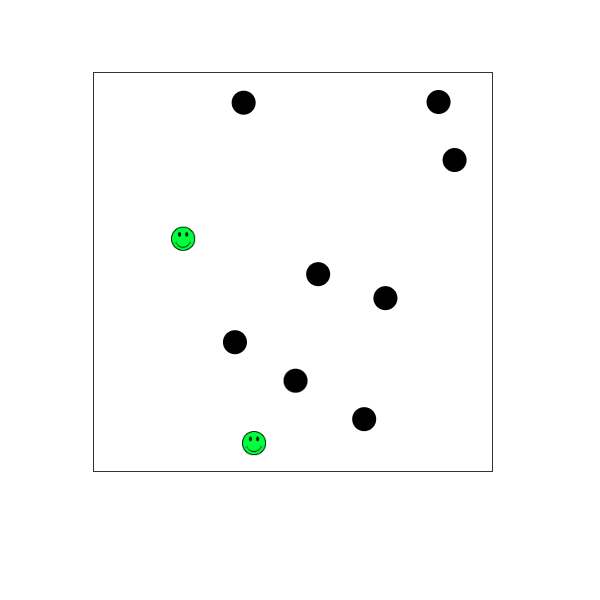
Accurate prediction of momentary cognition from intensive longitudinal data
Read more
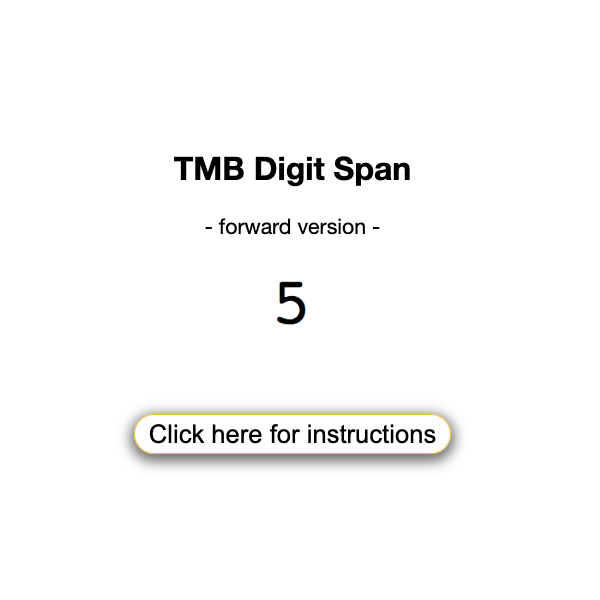
Is the Web as good as the lab? Comparable performance from Web and lab in cognitive/perceptual experiments
Read more

Ecological Momentary Assessment of Cognition in Clinical and Community Samples: Reliability and Validity Study
Read more
TestMyBrain References
If you are the author of a publication that used TestMyBrain tests, data, or tools, please let us know at info@testmybrain.org!
- Ferguson, I., George, G., Wu, C., Xu, I., Passel, E., Germine, L., Beard, C. (2024). Evaluating the reliability of the Word-Sentence Association Paradigm (WSAP) as an interpretation bias assessment across ethnoracial groups. Cognitive Therapy and Research, 1-8. read more
- Kim, H., Kaduthodil, J., Strong, R. W., Germine, L., Cohan, S., & Wilmer, J. B. (2024). Multiracial Reading the Mind in the Eyes Test (MRMET): an inclusive version of an influential measure. Behavior Research Methods.
read more
- Stern, C. M., McPherson, I., Dreier, M. J., Coniglio, K., Palmer, L. P., Gydus, J., Graver, H., Germine, L. T., ...Plessow, F., & Becker, K. R. (2024). Avoidant/restrictive food intake disorder differs from anorexia nervosa in delay discounting. Journal of Eating Disorders. read more
- Tsay., J. S., Asmerian, H., Germine, L. T., Wilmer, J., Ivry, R. B., & Nakayama., K. (2024). Large-scale web-based approach reveals predictors of successful motor learning. Nature Human Behaviour. read more
- Aul, C., Brau, J. M., Sugarman, A., DeGutis, J. M., Germine, L. T., Esterman, M., ... & Fortenbaugh, F. C. (2023). The functional relevance of visuospatial processing speed across the lifespan. Cognitive Research: Principles and Implications, 8(1), 51. read more
- Ayık, E., Fevzioğlu, A., Kaşıkçı, G. B., Kaşıkçı, C., & Midi, İ. (2023). Evaluation of the Effect of Anti-seizure Drugs on Cognition in Patients with Idiopathic Generalized Epilepsy by Digital Neuropsychological Test. Archives of Epilepsy, 29(1), 16-20. read more
- Camargo, C. J., Merritt, S., Modjeski, M., Counotte, D. S., & Fernández McInerney, K. (2023). Reducing the Effects of Ageing on Cognition with Therapeutic Intervention of an Oral Multi-Nutrient: The REACTION Pilot Trial Study Design. The Journal of Prevention of Alzheimer's Disease, 1-7. read more
- Cannon, J., Eldracher, E., Cardinaux, A., Irfan, F., Bungert, L., Li, C., ... & Sinha, P. (2023). Rhythmic and interval‐based temporal orienting in autism. Autism Research, 16(4), 772-782. read more
- Cataldo, A. M., Scheuer, L., Maksimovskiy, A. L., Germine, L. T., & Dillon, D. G. (2023). Abnormal evidence accumulation underlies the positive memory deficit in depression. Journal of Experimental Psychology: General, 152(1), 139. read more
- Feyzioğlu, A., Midi, İ., Ayık, E., Kaşıkçı, G. B., & Kaşıkçı, C. H. (2023). Digital Neuropsychological Assessment of Cognitive Functions in Patients with Epilepsy. Archives of Neuropsychiatry, 60(2), 129-133. read more
- French, M. A., Keatley, E., Li, J., Balasubramanian, A., Hansel, N. N., Wise, R., ... & Celnik, P. (2023). The feasibility of remotely monitoring physical, cognitive, and psychosocial function in individuals with stroke or chronic obstructive pulmonary disease. Digital Health, 9, 1-19. read more
- Fry, R., Tanaka, J. W., Cohan, S., Wilmer, J. B., Germine, L. T., & DeGutis, J. (2023). Effects of age on face perception: Reduced eye region discrimination ability but intact holistic processing. Psychology and Aging, 38(6), 548–561. read more
- Jones, L. M., de Marco, K., Keener, K., & Monroe, K. E. (2023). Blood Pressure and Self-management in Black Women With Hypertension: Protocol Revisions to the Brain Relationships Among Information, Neuroprocessing, and Self-Management Study Due to the COVID-19 Pandemic. JMIR Research Protocols, 12(1), e43849. read more
- Knott, C. E., Gomori, S., Ngyuen, M., Pedrazzani, S., Sattaluri, S., Mierzwa, F., & Chantala, K. (2021). Connecting and linking neurocognitive, digital phenotyping, physiologic, psychophysical, neuroimaging, genomic, & sensor data with survey data. EPJ Data Science, 10(9), 1-16. read more
- Lynham, A., Jones, I., & Walters, J. (2023). Cardiff ONline Cognitive Assessment (CONCA): Results from a web-based national population cohort. Journal of Medical Internet Research, Online Version. read more
- Mascarenhas Fonseca, L., Strong, R. W., Singh, S., Bulger, J. D., Cleveland, M., Grinspoon, E., ... & Chaytor, N. S. (2023). Glycemic variability and fluctuations in cognitive status in adults with type 1 diabetes (GluCog): observational study using ecological momentary assessment of cognition. JMIR Diabetes, 8, e39750. read more
- Pozo, E., T. Germine, L., Scheuer, L., & Strong, R. W. (2023). Evaluating the Reliability and Validity of the Famous Faces Doppelgangers Test, a Novel Measure of Familiar Face Recognition. Assessment, 30(4), 1200-1210. read more
- Pratt, D. N., Luther, L., Kinney, K. S., Osborne, K. J., Corlett, P. R., Powers III, A. R., ... & Mittal, V. A. (2023). Comparing a Computerized Digit Symbol Test to a Pen-and-Paper Classic. Schizophrenia Bulletin Open, 4(1), sgad027. read more
- Singh, S., Strong, R., Xu, I., Fonseca, L. M., Hawks, Z., Grinspoon, E., ... & Germine, L. T. (2023). Ecological Momentary Assessment of Cognition in Clinical and Community Samples: Reliability and Validity Study. Journal of Medical Internet Research, 25, e45028. read more
- Strong, R. W., Grashow, R., Roberts, A. L., Passell, E., Scheuer, L., Terry, D. P., ... & Germine, L. T. (2023). Association of retrospectively reported concussion symptoms with objective cognitive performance in former American-style football players. Archives of Clinical Neuropsychology, acad008. read more
- Treves, I. N., Cannon, J., Shin, E., Li, C. E., Bungert, L., O’Brien, A., ... & Gabrieli, J. D. (2023). Autistic Adults Show Intact Learning on a Visuospatial Serial Reaction Time Task. Journal of Autism and Developmental Disorders, 1-9. read more
- Wen, A., Wolitzky-Taylor, K., Gibbons, R. D., & Craske, M. (2023). A randomized controlled trial on using predictive algorithm to adapt level of psychological care for community college students: STAND triaging and adapting to level of care study protocol. Trials, 24(1), 1-19. read more
- DeGutis, J., Li, X., Yosef, B., & Mishra, M. V. (2022). Not so fast! Response times in the computerized Benton Face Recognition Test may not reflect face recognition ability. Cognitive Neuropsychology, 39(3-4), 155-169. read more
- DeGutis, J., Yosef, B., Lee, E. A., Saad, E., Arizpe, J., Song, J. S., ... & Esterman, M. (2022). The rise and fall of face recognition awareness across the life span. Journal of Experimental Psychology: Human Perception and Performance, 49(1), 22-33. read more
- Germine, L. T., Joormann, J., Passell, E., Rutter, L. A., Scheuer, L., Martini, P., ... & Kessler, R. C. (2022). Neurocognition after motor vehicle collision and adverse post-traumatic neuropsychiatric sequelae within 8 weeks: Initial findings from the AURORA study. Journal of Affective Disorders, 298, 57-67. read more
- Hawks, Z. W., Strong, R., Jung, L., Beck, E. D., Passell, E. J., Grinspoon, E., ... & Germine, L. T. (2022). Accurate prediction of momentary cognition from intensive longitudinal data. Biological Psychiatry: Cognitive Neuroscience and Neuroimaging, 8(8), 841-851. read more
- Levy, T., Britvan, B., Grosman, H., Giserman‐Kiss, I., Meyering, K., Weissman, J., ... & Siper, P. M. (2022). Assessing the utility of electronic measures as a proxy for cognitive ability. Autism Research, 15(6), 988-995. read more
- Lynham, A. J., Jones, I. R., & Walters, J. T. (2022). Web-based cognitive testing in psychiatric research: Validation and usability study. Journal of Medical Internet Research, 24(2), e28233. read more
- Passell, E., Rutter, L. A., Turban, J. L., Scheuer, L., Wright, N., & Germine, L. (2022). Generalized Anxiety Disorder Symptoms are Higher Among Same-and Both-Sex Attracted Individuals in a Large, International Sample. Sexuality Research and Social Policy, 1-12. read more
- Peterson, C. S., Zhu, Y., Germine, L. T., & Dunn, E. C. (2022). Associations Between Childhood Trauma Characteristics and Theory of Mind in Adults: Results From a Large, Diverse Sample. Child Psychiatry & Human Development, 1-12. read more
- Prijatelj, D. S., McCurrie, M., Anthony, S. E., & Scheirer, W. J. (2022). A Bayesian evaluation framework for subjectively annotated visual recognition tasks. Pattern Recognition, 123, 108395. read more
- Rodosthenous, R. S., Niemi, M. E., Kallio, L., Perala, M., Terho, P., Knopp, T., ... & Ganna, A. (2022). Recontacting biobank participants to collect lifestyle, behavioural and cognitive information via online questionnaires: lessons from a pilot study within FinnGen. BMJ Open, 12(10), e064695. read more
- Rutter, L. A., Lind, C., Howard, J., Lakhan, P., & Germine, L. (2022). Posttraumatic stress symptom severity is associated with impaired processing of emotional faces in a large international sample. Journal of Traumatic Stress, 35(4), 1263-1272. read more
- Treviño, M., Zhu, X., Lu, Y. Y., Scheuer, L. S., Passell, E., Huang, G., ... & Horowitz, T. S. (2022). Establishing construct validity of neuropsychological tests in cancer survivors. Psycho‐Oncology, 31(10), 1728-1736. https://doi.org/10.1002/pon.6015. read more
- Whelan, R., Barbey, F. M., Cominetti, M. R., Gillan, C. M., & Rosická, A. M. (2022). Developments in scalable strategies for detecting early markers of cognitive decline. Translational Psychiatry, 12(1), 473. read more
- Cabral, D. F., Hinchman, C. A., Nunez, C., Rice, J., Loewenstein, D. A., Cahalin, L. P., ... & Gomes-Osman, J. (2021). Harnessing neuroplasticity to promote brain health in aging adults: protocol for the MOVE-cog intervention study. JMIR Research Protocols, 10(11), e33589. read more
- Chaytor, N.S., Barbosa-Leiker, C., Germine, L. T., Fonseca, L.M., McPherson, S.M., Tuttle, K.R. (2021). Construct validity, ecological validity and acceptance of self-administered online neuropsychological assessment in adults. The Clinical Neuropsychologist, 35(1), 148-164. read more
- Germine, L., Strong, R. W., Singh, S., & Sliwinski, M. J. (2021). Toward dynamic phenotypes and the scalable measurement of human behavior. Neuropsychopharmacology, 46(1), 209-216. read more
- Li, L. Y., Cicero, D. C., Dodell-Feder, D., Germine, L., & Martin, E. A. (2021). Comparability of social anhedonia across epidemiological dimensions: A multinational study of measurement invariance of the Revised Social Anhedonia Scale. Psychological Assessment, 33(2), 171. read more
- Passell, E., Strong, R. W., Rutter, L. A., Kim, H., Scheuer, L., Martini, P., ... & Germine, L. (2021). Cognitive test scores vary with choice of personal digital device. Behavior Research Methods, 53(6), 2544-2557. read more
- Singh, S., Strong, R. W., Jung, L., Li, F. H., Grinspoon, L., Scheuer, L. S., Passell, E. J., Martini, P., Chaytor, N., Soble, J. R., & Germine, L. (2021). The TestMyBrain Digital Neuropsychology Toolkit: Development and Psychometric Characteristics. Journal of Clinical and Experimental Neuropsychology, 43(8), 786-795. read more
- Treviño, M., Zhu, X., Lu, Y. Y., Scheuer, L. S., Passell, E., Huang, G. C., ... & Horowitz, T. S. (2021). How do we measure attention? Using factor analysis to establish construct validity of neuropsychological tests. Cognitive Research: Principles and Implications, 6(1), 1-26. read more
- Vinogradov, S., Mishra, J., Nahum, M., & Ramsay, I. S. (2021). Information processing impairments as transdiagnostic treatment targets in psychiatric disorders. Precision Psychiatry: Using Neuroscience Insights to Inform Personally Tailored, Measurement-Based Care, 51. read more
- Yamashita, A., Rothlein, D., Kucyi, A., Valera, E. M., Germine, L., Wilmer, J., ... & Esterman, M. (2021). Variable rather than extreme slow reaction times distinguish brain states during sustained attention. Scientific Reports, 11(1), 14883. read more
- D’Ardenne, K., Savage, C. R., Small, D., Vainik, U., & Stoeckel, L. E. (2020). Core neuropsychological measures for obesity and diabetes trials: Initial report. Frontiers in Psychology, 11, 554127. read more
- Dodell-Feder, D., Ressler, K. J., & Germine, L. T. (2020). Social cognition or social class and culture? On the interpretation of differences in social cognitive performance. Psychological Medicine, 50(1), 133-145. read more
- Dodell-Feder, D., Shovestul, B., Woodyatt, J., Popov, V., & Germine, L. (2020). Social anhedonia, social networks, and psychotic-like experiences: A test of social deafferentation. Psychiatry Research, 284, 112682. read more
- Lebois, L. A., Palermo, C. A., Scheuer, L. S., Lebois, E. P., Winternitz, S. R., Germine, L., & Kaufman, M. L. (2020). Higher integration scores are associated with facial emotion perception differences in dissociative identity disorder. Journal of Psychiatric Research, 123, 164-170. read more
- McLean, S.A., Ressler, K., Koenen, K.C., Neylan, T., Germine, L., Jovanovic, T., … Kessler, R. (2020). The AURORA Study: A longitudinal, multimodal library of brain biology and function after traumatic stress exposure. Molecular Psychiatry, 25, 283-296. read more
- Rutter, L. A., Passell, E., Scheuer, L., & Germine, L. (2020). Depression severity is associated with impaired facial emotion processing in a large international sample. Journal of Affective Disorders, 275, 175-179. read more
- Rutter, L. A., Vahia, I. V., Forester, B. P., Ressler, K. J., & Germine, L. (2020). Heterogeneous Indicators of Cognitive Performance and Performance Variability Across the Lifespan. Frontiers in Aging Neuroscience, 12, 62. read more
- Shovestul, B., Han, J., Germine, L., & Dodell-Feder, D. (2020). Risk factors for loneliness: The high relative importance of age versus other factors. PloS ONE, 15(2), e0229087. read more
- Turban, J. L., Passell, E., Scheuer, L., & Germine, L. (2020). Use of geosocial networking applications is associated with compulsive sexual behavior disorder in an online sample. The Journal of Sexual Medicine, 17(8), 1574-1578. read more
- Vogel, S. C., Esterman, M., DeGutis, J., Wilmer, J. B., Ressler, K. J., & Germine, L. T. (2020). Childhood adversity and dimensional variations in adult sustained attention. Frontiers in Psychology, 11, 691. read more
- Arizpe, J. M., Saad, E., Douglas, A. O., Germine, L., Wilmer, J. B., & DeGutis, J. M. (2019). Self-reported face recognition is highly valid, but alone is not highly discriminative of prosopagnosia-level performance on objective assessments. Behavior Research Methods, 51, 1102-1116. read more
- Dodell-Feder, D., Saxena, A., Rutter, L., & Germine, L. (2019). The network structure of schizotypal personality traits in a population-based sample. Schizophrenia Research, 208, 258-267. read more
- Germine, L., Reinecke, K., & Chaytor, N.S. (2019). Digital neuropsychology: Challenges and opportunities at the intersection of science and software. The Clinical Neuropsychologist, 33(2), 271-286. read more
- Mishra, M. V., Likitlersuang, J., B Wilmer, J., Cohan, S., Germine, L., & DeGutis, J. M. (2019). Gender differences in familiar face recognition and the influence of sociocultural gender inequality. Scientific Reports, 9(1), 17884. read more
- Rutter, L. A., Dodell-Feder, D., Vahia, I. V., Forester, B. P., Ressler, K. J., Wilmer, J. B., & Germine, L. (2019). Emotion sensitivity across the lifespan: Mapping clinical risk periods to sensitivity to facial emotion intensity. Journal of Experimental Psychology. General, 148(11), 1993-2005. read more
- Rutter, L. A., Scheuer, L., Vahia, I. V., Forester, B. P., Smoller, J. W., & Germine, L. (2019). Emotion sensitivity and self‐reported symptoms of generalized anxiety disorder across the lifespan: A population‐based sample approach. Brain and Behavior, 9(6), e01282. read more
- Deveney, C.M., Chen, S.H., Wilmer, J.B., Zhao, V., Schimdt, H.B., & Germine, L. (2018). How generalizable is the inverse relationship between social class and emotion perception? PLoS ONE, 13(10): e0205949. read more
- Dodell-Feder, D., & Germine, L. (2018). Epidemiological dimensions of social anhedonia. Clinical Psychological Science, 6(5), 735-743. read more
- Rothlein, D., DeGutis, J., Germine, L., Wilmer, J., McGlinchey, R., & Esterman, M. (2018). Sensitivity to stimulus similarity is associated with greater sustained attention ability. Attention, Perception & Psychophysics, 80(6), 1390-1408. read more
- Macdonald, K., Germine, L., Anderson, A., Christodoulou, J., & McGrath, L. M. (2017). Dispelling the myth: Training in education or neuroscience decreases but does not eliminate beliefs in neuromyths. Frontiers in Psychology, 8, 1314. read more
- Richler, J. J., Wilmer, J. B., & Gauthier, I. (2017). General object recognition is specific: Evidence from novel and familiar objects. Cognition, 166, 42-55. read more
- Riley, E., Esterman, M., Fortenbaugh, F. C., & DeGutis, J. (2017). Time-of-day variation in sustained attentional control. Chronobiology International, 34(7), 993-1001. read more
- Riley, E., Okabe, H., Germine, L., Wilmer, J., Esterman, M., & DeGutis, J. (2016). Gender differences in sustained attentional control relate to gender inequality across countries. PloS One, 11(11), e0165100. read more
- Fortenbaugh, F. C., DeGutis, J., Germine, L., Wilmer, J. B., Grosso, M., Russo, K., & Esterman, M. (2015). Sustained Attention Across the Life Span in a Sample of 10,000: Dissociating Ability and Strategy. Psychological Science, 26(9), 1497–1510. read more
- Germine, L., Dunn, E.C., McLaughlin, K., & Smoller, J.W. (2015). Childhood adversity is associated with adult theory of mind and social affiliation, but not face processing. PLoS ONE, 10(6): e0129612. read more
- Germine, L., Russell, R., Bronstad, P. M., Blokland, G. A., Smoller, J. W., Kwok, H., ... & Wilmer, J. B. (2015). Individual aesthetic preferences for faces are shaped mostly by environments, not genes. Current Biology, 25(20), 2684-2689. read more
- Hartshorne, J. K., & Germine, L. T. (2015). When does cognitive functioning peak? The asynchronous rise and fall of different cognitive abilities across the life span. Psychological Science, 26(4), 433-443. read more
- Susilo, T., Germine, L., & Duchaine, B. (2013) Face recognition ability matures late: Evidence from individual differences in young adults. Journal of Experimental Psychology: Human Perception and Performance, 39(5), 1212-1217. read more
- Germine, L. T., Nakayama, K., Duchaine, B. C., Chabris, C. F., Chatterjee, G., & Wilmer, J. B. (2012). Is the Web as good as the lab? Comparable performance from Web and lab in cognitive/perceptual experiments. Psychonomic Bulletin & Review, 19(5), 847–857. read more
- Halberda, J., Ly, R., Wilmer, J., Naiman, D., & Germine, L. (2012) Number sense across the lifespan as revealed by a massive internet-based sample. Proceedings of the National Academy of Sciences, 109(28): 11116-11120. read more
- Wilmer, J. B., Germine, L., Chabris, C. F., Chatterjee, G., Gerbasi, M., & Nakayama, K. (2012). Capturing specific abilities as a window into human individuality: The example of face recognition. Cognitive Neuropsychology, 29(5-6), 360-392. read more
- Germine, L. & Hooker, C. (2011) Face emotion recognition is related to individual differences in psychosis-proneness.Psychological Medicine, 41(5), 937-948. read more
- Germine, L., Duchaine, B., & Nakayama, K. (2011) Where cognitive development and aging meet: Face learning ability peaks after age 30. Cognition, 118(2), 201-210. read more
- Wilmer, J., Germine, L., Chabris, C., Chatterjee, G., Williams., M., Loken, E., Nakayama, K., & Duchaine, B. (2010) Human face recognition ability is specific and highly heritable. Proceedings of the National Academy of Sciences, 107(11), 5238-5241. read more